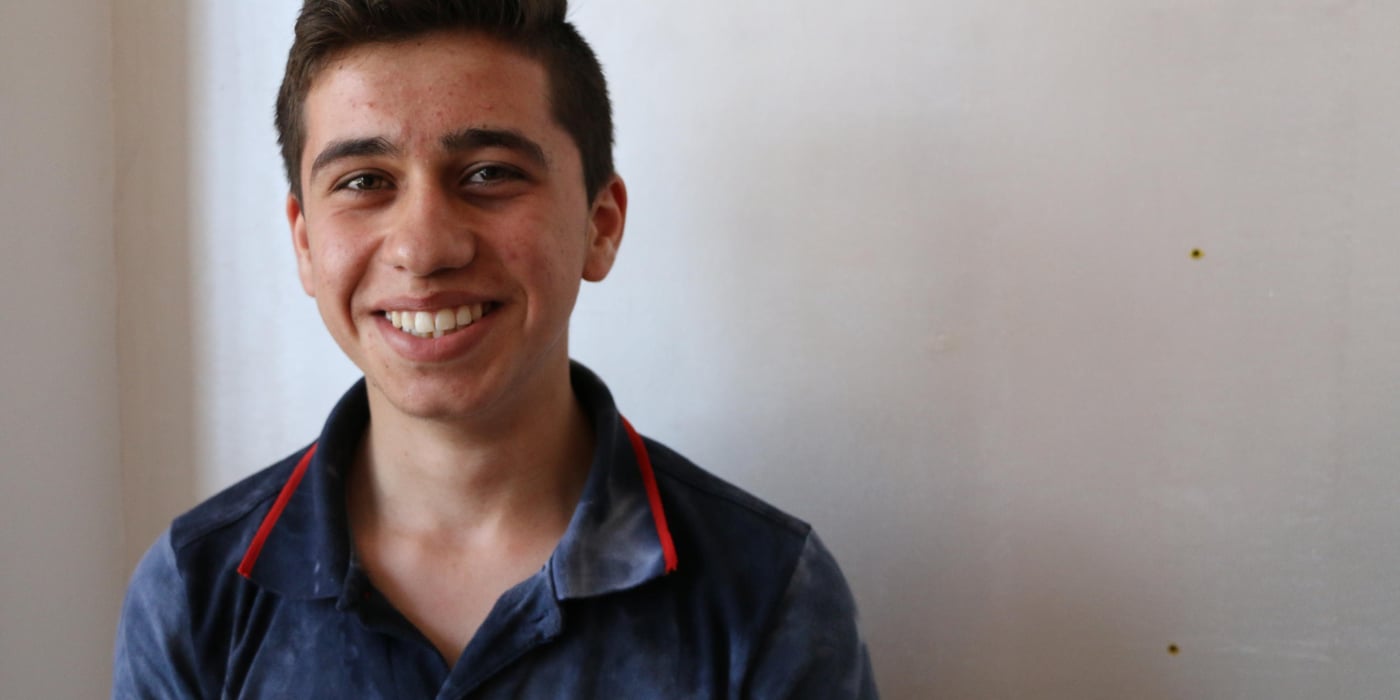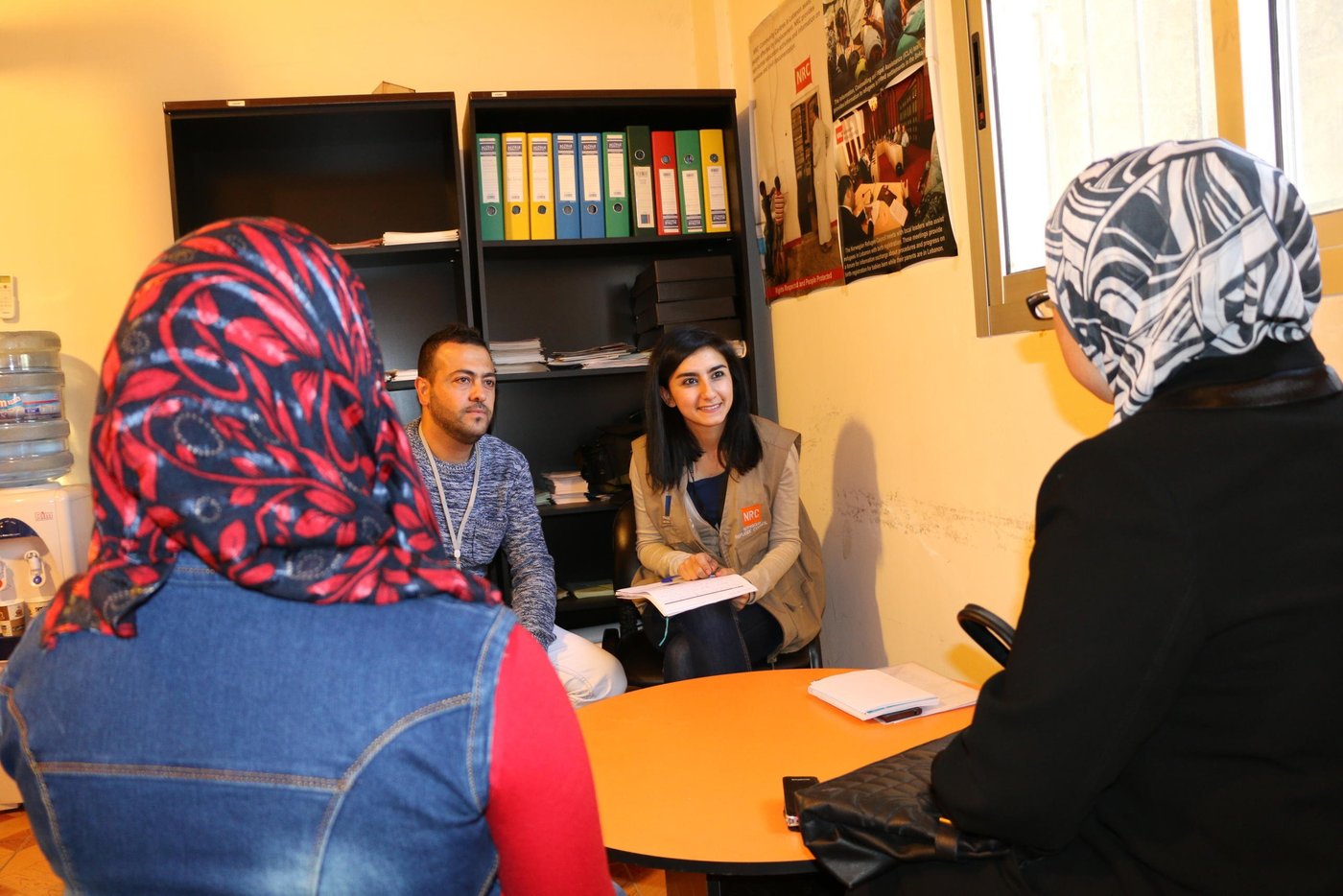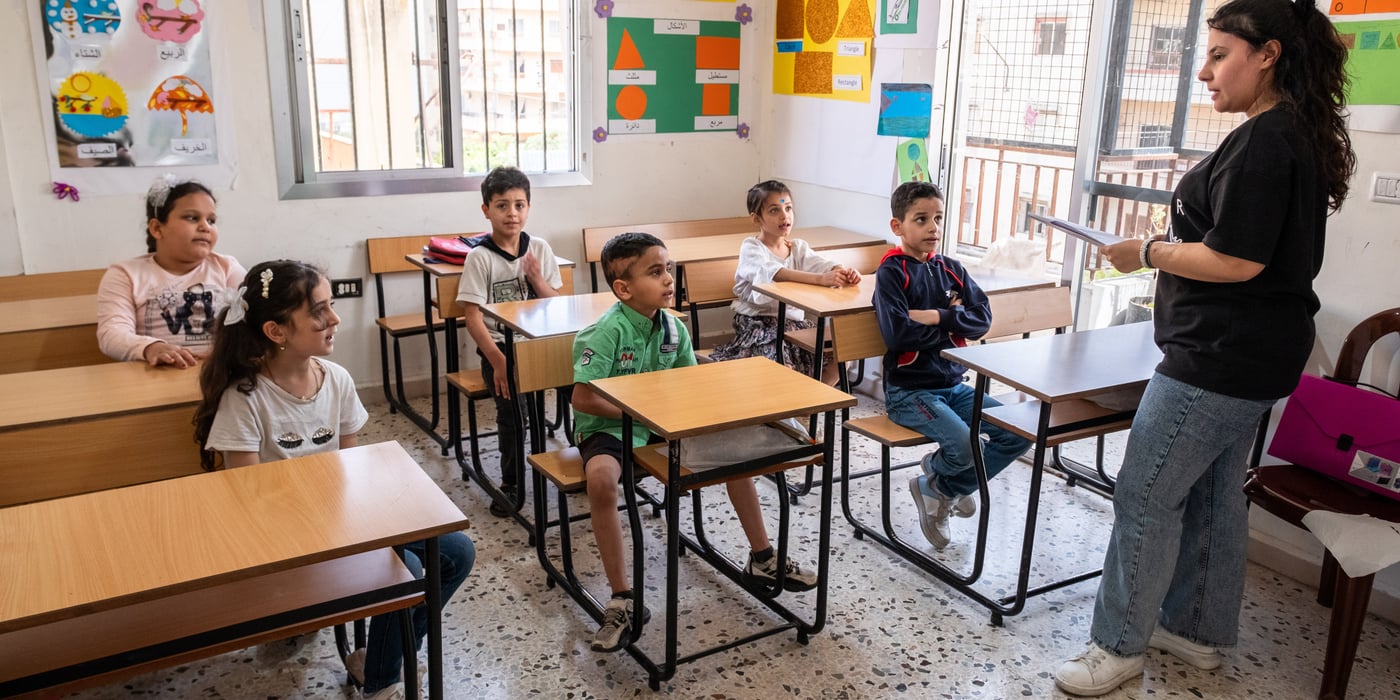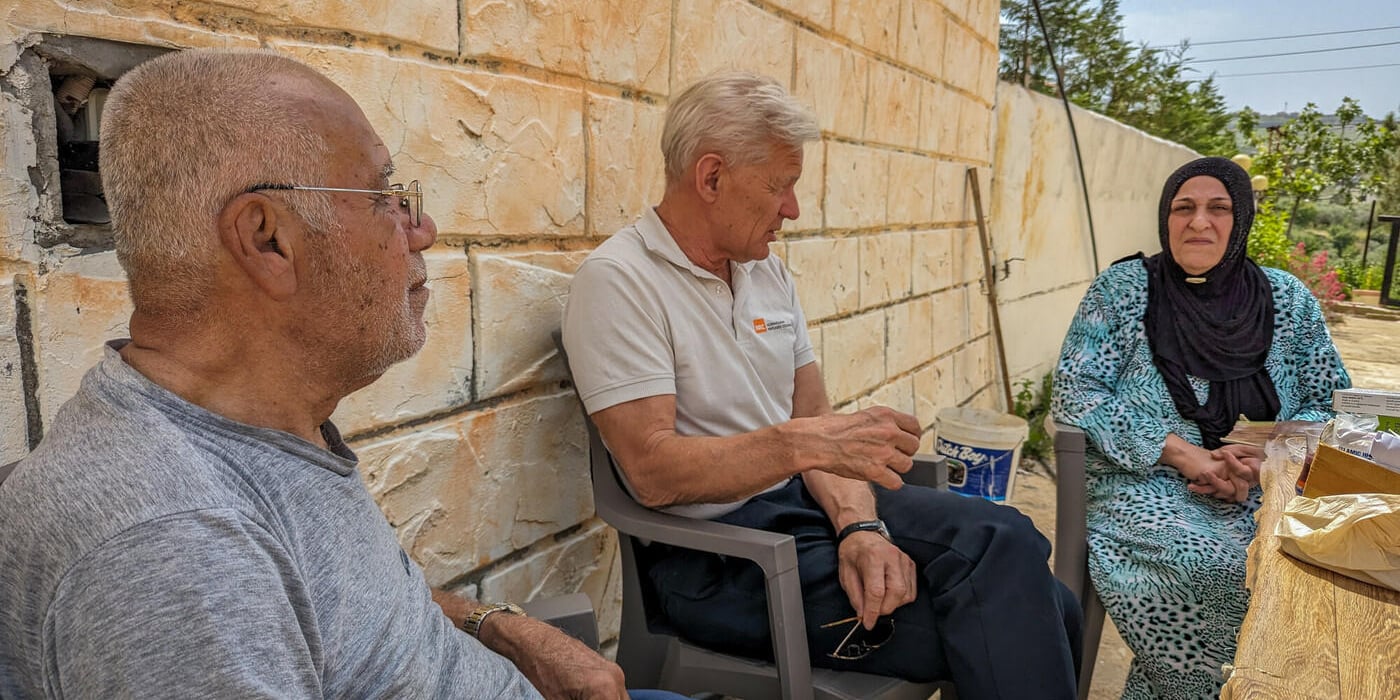
“I like my school a lot,” says Karim. “Everyone treats me very well and bullying is not allowed. Sometimes when we can’t afford the tuition fees they give us discounts.”
Like many other Syrian refugee youth, the 17-year-old was forced to drop out of school because he did not have a legal residence permit.
“The school is far away from where we live and there are many checkpoints on the road so I can’t take the risk of being arrested and detained,” says Karim, who hasn’t been able to obtain a legal residency permit in Lebanon for two years.
Children of Syrian refugees are able to maintain legal residency in Lebanon through their parents’ residency documents. However, once a child turns 15 years old they are required to obtain their own legal residency documents.
Returning to Syria for identity documents
Obtaining legal residency status is one of the biggest problems Syrian refugees face in Lebanon. Up to 80 per cent don’t have valid residency permits. Without a residence permit there is no sense of security. They risk fines, arrest, detention, and even potential departure orders. The fear of being arrested and detained forces many Syrian refugees to limit their movements and resort to negative coping mechanisms to survive.
Although the government of Lebanon has eased some of the requirements to obtain legal residency, it is still very difficult to fulfil the remaining conditions. The identification currently accepted by the Lebanese government must be issued by the Syrian government. The only way to get this ID is by returning to Syria. Not only is this exceptionally dangerous, but returning to Syria is itself technically impossible under these circumstances: to get an exit visa to leave Lebanon, a Syrian refugee would need to produce valid identification.
The Norwegian Refugee Council (NRC) strongly believes that conditions in Syria are not safe for refugees to return and that refugees should not be faced with a choice of residing without legal residency in Lebanon or risking their lives to obtain documents from Syria. A return to Lebanon would also be uncertain even with the appropriate documentation, as Lebanon has effectively closed its borders to Syrians who are fleeing conflict and persecution.

Stuck in limbo
Hundreds of thousands of children like Karim are stuck in this bureaucratic limbo, displaced in Lebanon without legal residency and no recourse. They are forced to leave school for fear of being stopped and detained by the authorities. Boys Karim’s age face an even greater risk: if they were to be deported or to return to Syria, there is a significant chance that they would be forced to conscribe in Syria’s ongoing conflict.
Karim misses his life in Syria and wants to go back. “I remember when I used to sleep and wake up happy,” he recalls. “I could move freely with no fears. Whenever I was bored I would visit my friends and relatives”
In Lebanon, it’s different. “Here, I only see how my parents are sad and always worried about us all the time but we are not able to do anything about our life. I only wish that we could live with peace of mind and be happy again.”
Raising awareness of refugees’ rights
NRC’s information, counselling and legal assistance programme helps refugees to understand the Lebanese legal and civil registration systems, raise awareness of their rights and legal obligations in Lebanon, and conduct advocacy at local and national levels on protection related issues. Refugees are offered legal consultations to facilitate processes such as marriage and birth registration. Sama* is one of them.
She explains how living without a residence permit affects her life. “If an accident would happen and I am taken to the hospital, security forces would cause a problem if you do not have a valid permit. Even if you are in need of medical assistance they would interrogate you about it,” she says.
“In Syria we had a better life where we were not dependant on assistance and I hope that we can return one day to start over.”



